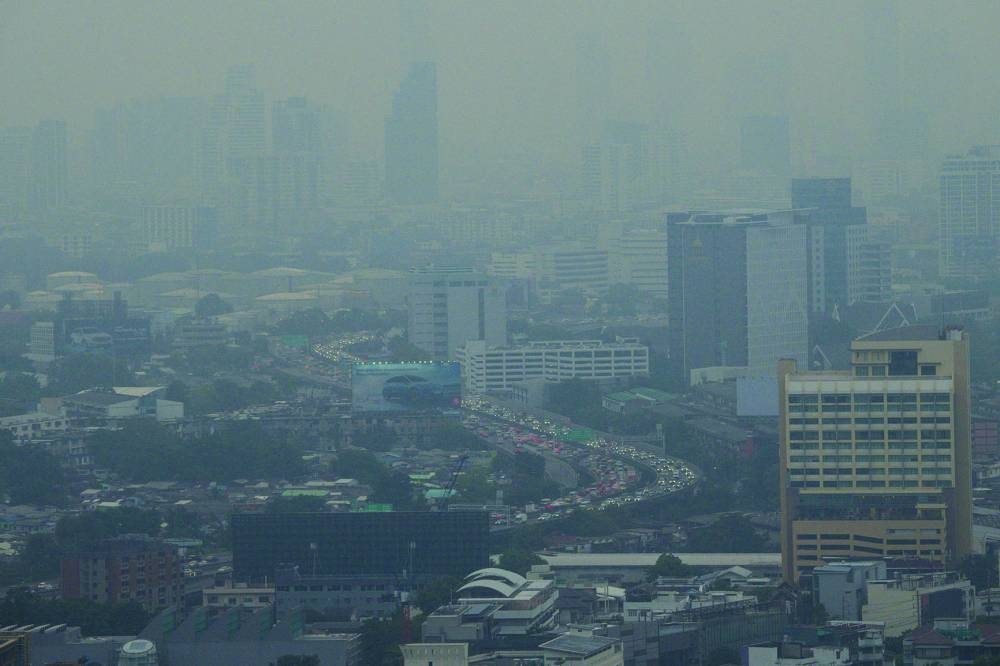Thai officials on Friday promised action to address a spike in air pollution that came before the normal peak of seasonal haze, but environmental activists accused authorities of hot air.
Bangkok ranked as the world’s 10th most polluted city on Friday, according to the air quality monitoring firm IQAir.
Government officials said the sudden spike was largely due to atmospheric conditions, with fine particulate accumulating due to colder air, high air pressure and dry weather.
The jump in PM2.5 - particles that are so fine they can enter the bloodstream - prompted the government to warn vulnerable groups.
“Air quality and safety... is an important priority,” a government statement insisted.
Officials promised to “ramp up PM2.5 prevention methods, such as limiting the area where people can burn crops, setting up regulations between the public and private sectors, increasing monitoring spots, and negotiating with relevant sectors about the transnational pollution.”
However, environmental groups accused the government of ignoring a key contributor to the problem: industry.
“We have to put the band-aid where the wound is,” Alliya Moun-ob, air pollution campaigner for Greenpeace Thailand, said.
“Several research papers show industrial activity causes a large percentage of PM 2.5, but we have little data about it.”
Thailand’s government says the industrial sector accounts for just 4% of the suffocating haze that regularly blankets parts of the country during the cooler winter months.
It instead blames factors like seasonal burning by farmers, including in neighbouring countries.
But the recent spike in pollution, even before the peak of the burning season, shows the industrial sector’s impact is likely much higher, said Panchom Saetang, the director of Ecological Alert and Recovery-Thailand.
She has researched air quality issues for over a decade and believes industry contributes closer to a third of the particulate that causes haze in the capital.
“I appreciate the government is trying to fix the PM 2.5 problem, but what they should do is to look at the industrial sector seriously,” she said.

Vehicles sit in traffic on a busy road amid high levels of air pollution in Bangkok.
